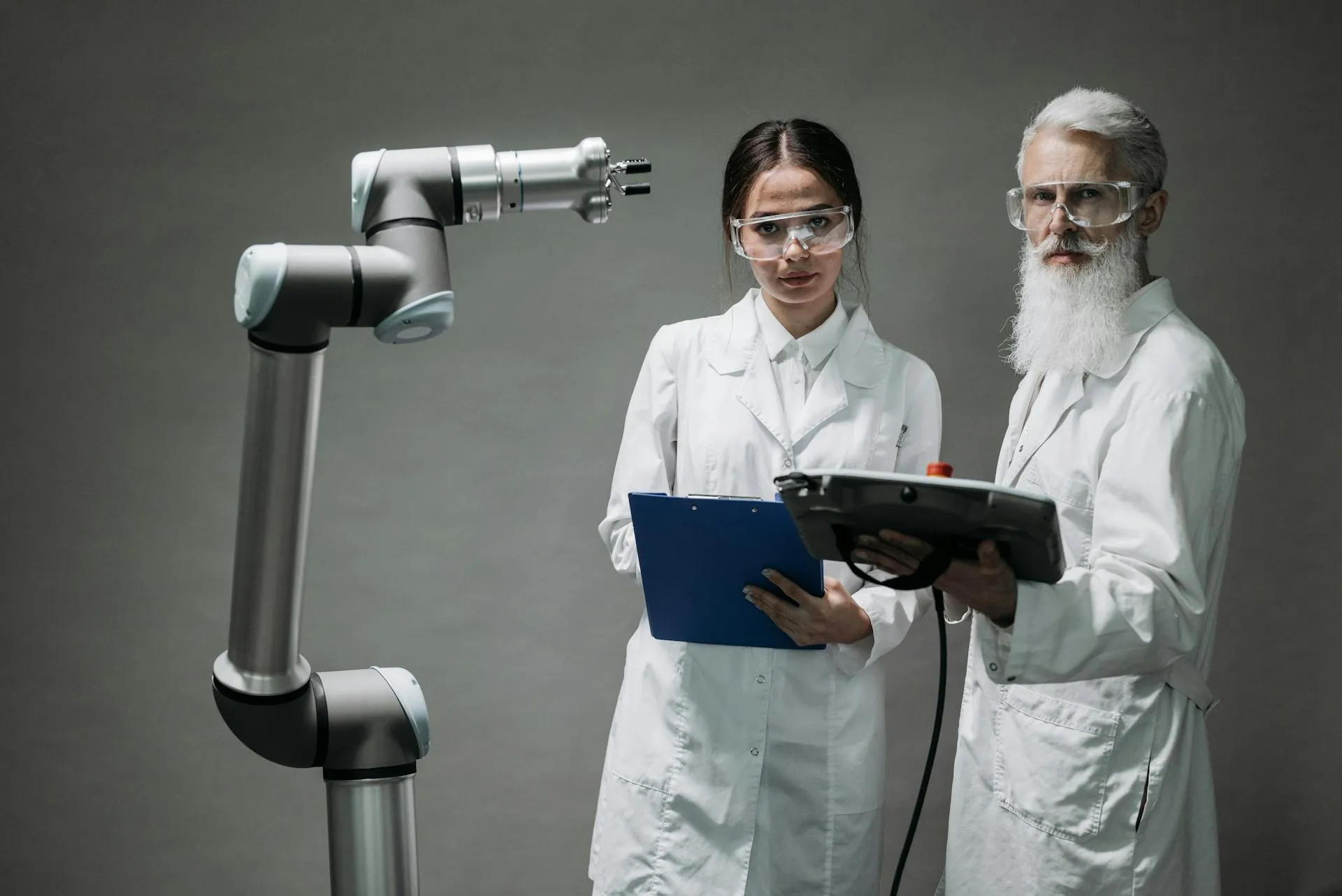We are currently experiencing one of the biggest technological transformations in the history of mankind. We have seen how AI helps us in decision making, in the way we interact with technology, in the increased speed at which we perform daily tasks, we have even seen AI helping health. However, hand in hand with these advances come ethical concerns of artificial intelligence that we must address objectively, throughout this article we will explore some of these concerns.

Bias and Discrimination
One of the most prominent ethical concerns of artificial intelligence is bias and discrimination. AI algorithms are trained on historical data, and if that data contains bias, the AI can perpetuate and amplify those biases. For example, in the hiring arena, AI systems analyzing resumes may discriminate against certain demographic groups if the training data reflects historical biases. This can result in unfair decisions and perpetuate inequality.

Data Privacy and Security
Privacy is another crucial issue in the ethical concerns of artificial intelligence. AI systems often require large amounts of data to function effectively, raising concerns about how that data is collected, stored, and used. Mass collection of personal data without proper consent can invade the privacy of individuals and lead to misuses of information, such as unauthorized surveillance or identity theft.

Transparency and Explainability
Transparency is critical to address the ethical concerns of artificial intelligence. Many AI algorithms, especially those based on deep learning techniques, are black boxes that produce results without users being able to understand how those decisions were arrived at. Lack of explainability can be problematic, especially in critical areas such as healthcare or criminal justice, where decisions must be justified and verifiable.
Autonomy and Control
The increasing autonomy of AI systems raises ethical challenges in terms of control and liability. Who is responsible if an autonomous car causes an accident: the manufacturer, the software developer, or the user himself? Lack of clarity about liability can complicate the implementation and use of AI in critical situations.

Impact on Employment
Another ethical concern of artificial intelligence is its impact on employment. Automation and AI systems are displacing workers in many industries, raising concerns about unemployment and economic inequality. While AI may also create new job opportunities, the balance between jobs lost and jobs created is uncertain, and people affected by automation may face difficulties adapting to new roles.
Moral Dilemmas in Decision Making
AI systems often face complex moral dilemmas, especially in areas such as autonomous driving and medical care. For example, in an imminent collision scenario, should an autonomous car prioritize the safety of its passengers or that of pedestrians? In healthcare, AI algorithms may have to decide the allocation of limited resources, such as organs for transplantation, raising ethical questions about who should receive treatment.

AI in legal courts
The use of artificial intelligence tools in courts around the world has been increasing. The use that can be made of AI has been mainly as a tool for:
- Organize: since the AI is not a human being, it cannot get tired, so it can be given a large amount of documents to organize, thus helping law enforcement to obtain the most relevant information for their case. As a result, this would help save time and resources.
- Advise: One of the advantages that can be obtained from this is that the AI can be consulted for specific information, thus helping to make better decisions.
With the entry of AI into the courts, the question has been raised as to whether it is possible to use AI to make a decision in important cases, of course, it is a very sensitive issue and whether it is feasible or not should be debated. The main ethical issues we see in this case are:
- Lack of transparency of AI tools: AI decisions are not always intelligible to humans.
- AI is not neutral: AI-based decisions are susceptible to inaccuracies, discriminatory outcomes, built-in or embedded biases.
- Surveillance practices for data collection and privacy of court users.
- Emerging concerns about impartiality and risk to human rights and other fundamental values.

Manipulation and Disinformation
The use of AI in content creation and dissemination also presents significant ethical concerns. AI algorithms can generate fake news and manipulate information, affecting public opinion and democracy. Deepfakes, fake videos created with AI, can mislead people and damage the reputation of individuals, as well as contribute to distrust in the media.
As a result of all this, there is a bias in the opinion of those who approach this false information, who in turn replicate this information with other people. This is why it is important to regulate the use of AI, as it can bring severe harm to those who are the targets of fake news.
Consent and Personal Autonomy
Related to the previous topic, AI can also influence personal autonomy and informed consent. Virtual assistants and recommender systems can influence users’ decisions without them being fully aware of it. For example, recommendation algorithms in social networks can create filter bubbles that limit exposure to diverse viewpoints, affecting individuals’ ability to make informed decisions.

Conclusion
The ethical concerns of artificial intelligence are multifaceted and require careful attention by developers, policymakers, and society at large. As AI continues to evolve, it is essential to address these ethical challenges to ensure that the technology is used in a manner that is fair, transparent, and beneficial to all. Understanding and mitigating the ethical concerns of artificial intelligence is crucial to harnessing its potential while protecting human rights and dignity.

